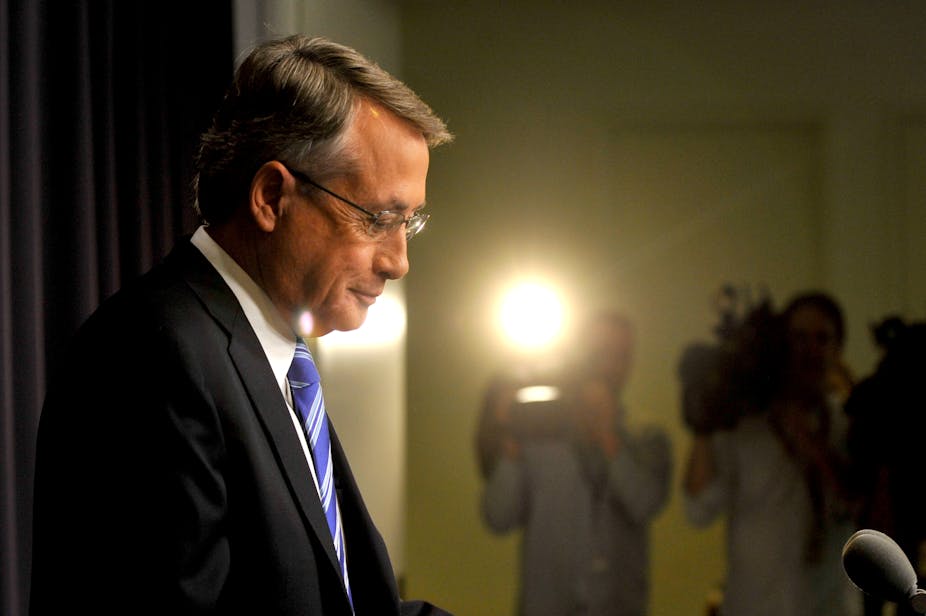What do you make of Treasurer Wayne Swan’s decision to officially block the merger of the ASX and the Singapore Exchange?
This is the wrong decision.
Australia has an aspiration to be a regional financial centre, and that aspiration has been carried from one government to the next. In order to do that you really need to embrace global capital markets.
What you need to do is attract global order flow to your market place. The ASX and Singapore exchange deal provided an opportunity for doing this.
The reason the merger made a lot of sense is that the Australian exchange is very good at soaking up domestic capital and savings, but has not strategically focussed on attracting international capital through international order flows.
It has never really needed to because of the huge quantity of superannuation savings in Australia. We have the fourth largest pension fund market in the world.
We have a huge amount of funds under management and that has been effectively tapped by the exchange, but it has not focused on tapping international order flow.
The Singapore Exchange, in contrast, had carved out its success by attracting international order flow and international listings. This was their specialty.
They have a smaller economy, much smaller than ours. So they needed to be creative and international in their outlook. They’ve done that very successfully.
The merger with the Singapore exchange would have helped Australia access global capital markets. That would have been the first significant step towards our goal of becoming a significant regional financial centre.
Primarily, the governments decision to bock a takeover for is a bad decision for that reason.
What about his assertion that the proposed deal favoured the SGX? Is this accurate?
The focus in the press has been on the fact that they’re taking over our exchange. People are asking “why are they taking over our exchange? Why can’t we go and buy another exchange?”
It’s a question that has been asked many times, but it is a very poor question.
The Singapore exchange is buying a productive asset, that being a set of infrastructure on which the exchange is built.
But the key point that is missed is that regulatory sovereignty – that is, the right for Australian regulators to supervise local companies and capital in order to protect them – is not for sale.
Yes, a business is being sold, but the Singapore exchange is effectively paying a healthy premium for acquiring that business. But we are not selling the right to protect Australian capital and Australian productive assets.
Is this a setback for the ASX’s expansion goals?
We’re a country that can be very proud of its innovation in capital markets.
We had the first exchange outside of the United States to introduce an equity futures contract. We were the first market in the world to introduce overnight electronic trading.
We were one of the first countries in the world to corporatise and list its exchange.
But we’re seriously behind in embracing international global capital markets as we appear not to have found a suitable merger partner for expanding out international horizons.
The New York Stock Exchange purchased the Euronext consortium, and the German stock market, the Deutsche Boerse, is currently in the process of purchasing the NYSE Euronext consortium.
My sources tell me that deal will go through.
The London Stock Exchange is in the middle of acquiring the Toronto Stock Exchange, and that deal also looks like going through.
So what we are doing is contrary to what is happening globally. Unfortunately, it means that we’re stepping away from global capital markets and yet we have this apparent aspiration to be a regional finance centre.
The message that we’re clearly sending out is that we’re unwilling to embrace international investment in our economy. It’s a bad message to be sending out, and one that may well deter potential future suitors for a possible merger with the ASX.
Is there an alternative model that could help ASX to open up to global capital markets?
It’s unlikely that other suitors will come forward. The Singapore exchange merger made a lot of sense. They’re a simliar sized exchange, in terms of the value of the business.
The ASX and SGX have a business that are roughly the same size, in the order of $5billion to $6billion.
The largest market in the world, in terms of the value of the business, is the Hong Kong exchange. I don’t think there are other markets in the world that have the balance sheet to be able to make a takeover offer or a merger with the ASX that is as attractive as the one just rejected.
The London Stock Exchange and the NASDAQ are relatively small markets - they’re worth $3billion or $4billion.
The Hong Kong exchange, while it does have a strong balance sheet - and is the biggest equities exchange in the world - doesn’t make as much sense as a merger partner as Singapore because they don’t have the same global reach.
This leaves us in a very difficult position.
Is there a reluctance on the political level to embrace global capital markets?
It’s difficult to say. There have been many nationalistic arguments floating around and a lot of cultural-type arguments.
We are light on in terms of serious and well-rationalised arguments contrary to the deal, I haven’t heard any come forward.

